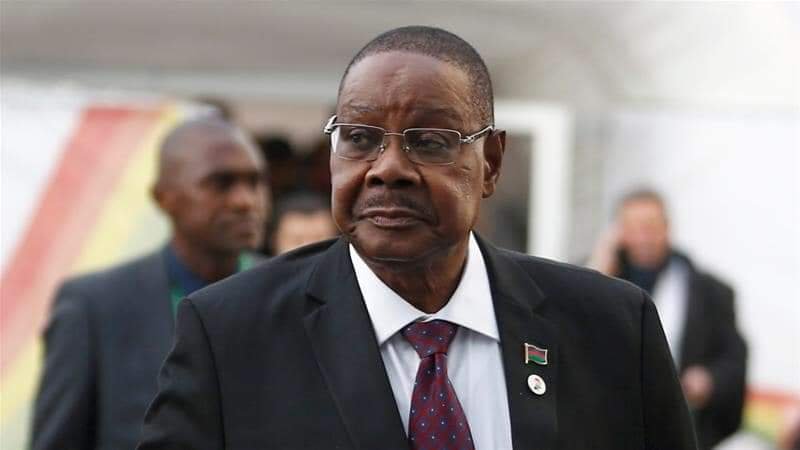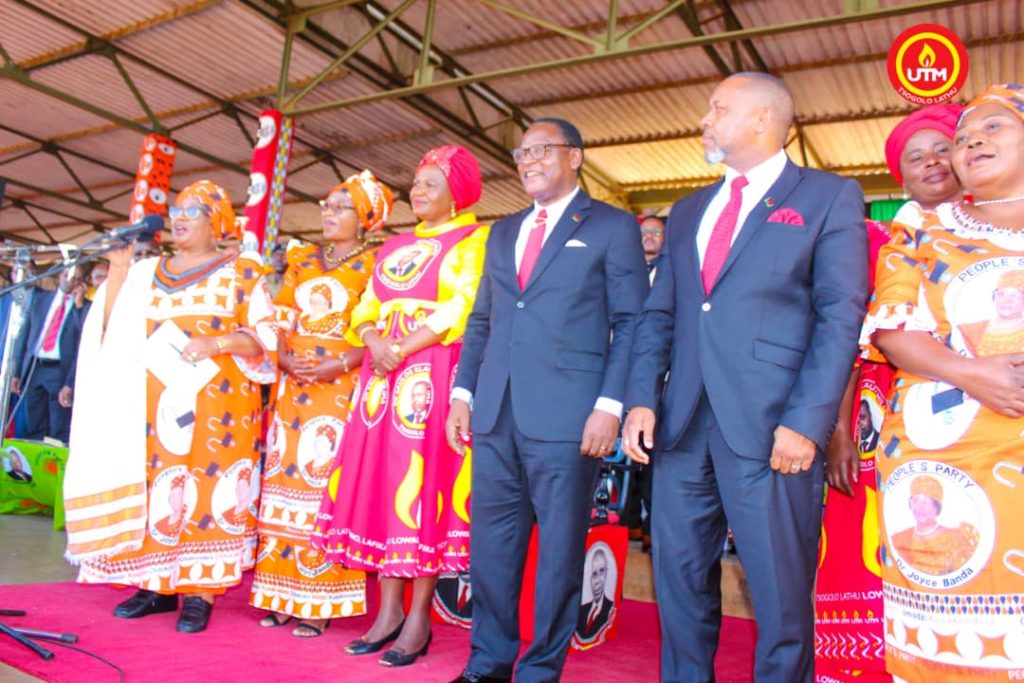By Fletcher Simwaka
When 2019 presidential contenders, Dr. Lazarus Chakwera and Dr. Saulos Chilima, took the 2019 presidential results to court, doom-mongers were all over, casting pessimism on the duo’s cause.
Controversial ‘winner’, President Professor Peter Mutharika, also joined the verbal assault against the opposition, calling them “big time losers”. Mutharika went on challenge angry protesters mobilized by Human Rights Defenders Coalition (HRDC), calling their demonstrations as gainless.
“Let them demonstrate till 2024,” he mocked, to the deafening ululation of DPP supporters.
Understandably, the pessimists, including Mutharika, were motivated by the history. For Malawi’s political history has never been kind to “losing” opposition candidates in far as their quest for electoral justice is concerned.
Every time the elections were challenged in court by the dissatisfied opposition candidates, the ruling never went their way.
In 1999, the late Gwanda Chakwamba challenged the presidential results, accusing Dr. Bakili Muluzi of rigging the election in his favour. But the court upheld Muluzi’s victory.
In 2004, Chakwamba almost went to court again after another “unfathomable” ‘loss’ to Dr. Bingu wa Mutharika of United Democratic Front (UDF). Chakwamba was later appeased with a peace deal which later saw him serve in the Mutharika administration as a cabinet minister. That was the last Chakwamba was seen relevant, politically. But certainly not the last for losing candidates’ quest for electoral justice.

After feeling short-changed by the 2009 presidential poll results, John Zenus Ungapake Tembo (JZU) went back to the court for electoral justice. But just like in 1999, the court upheld the 2009 poll results which put the late Dr. Bingu wa Mutharika as a winner with an assailable 67 percent of the total votes. And that was the last court move by JZU.
With Chakwamba and Tembo’s bad days in court, Malawians started establishing a position. Many started living with the fact that “losing” opposition political leaders would never emerge victorious against presidential results in Malawi’s courts.
So, when Dr Saulos Chilima and Dr. Lazarus Chakwera joined 2019 presidential campaign trail, assuring Malawians that no one would rig the elections this time around, some pessimists, as they did with Chakwamba and Tembo, simply poured scorn on their claims.
Nevertheless, Dr. Lazarus Chawera, JZU successor at MCP, never tired from from standing up to electoral injustice. And in 2019, he never waited for the final results to launch his challenge.
Barely two days after Malawians cast their vote, Dr. Lazarus Chakwera held An impromptu presser in Blantyre—just a few kilometres away from the main tally centre—accusing Malawi Electoral Commission (MEC) of colluding with some compromised officials in twisting the figures in Arthur Peter Mutharika’s favour.
“Some evil people have stepped into the vacuum either to give you false information or to try to interfere with the process of tallying the results in a desperate and failed attempt to subvert the clear will of Malawians” he charged.

Dr. Chakwera wasn’t crying foul alone.
A few days later, UTM President Dr.Saulos Klaus Chilima, another hot contender in the polls, rung alarm bells, calling the presidential election a “sham”. Dr. Chilima, popularly known as SKC in political circles by his admirers, cited ‘a plethora of irregularities’ as having undermined the presential elections.
In his highly charged presser in June in Lilongwe, Dr. Chilima faulted Malawi Electoral Commission for having “dismally failed in its constitutional duty to the people of Malawi by being involved in a scheme aimed at ultimately subverting the will of the people of Malawi.”
“Some of the irregularities for which we have credible evidence and proof are failure to collect and seal away extra ballot boxes before counting and compiling results, thereby making extra ballot papers available for post-polling marking and stuffing to consummate the fraudulent results records or post-future verification against the ballot in peril.”
SKC punched his challenge against the results by calling for fresh presidential elections. A daring demand, one would say.
With that statement, SKC and Chakwera kick-started a seven month-long quest for electoral justice in Malawi’s court.
As usual, the government, led by the Attorney General Kalekeni Kaphale, made several attempts aimed at discrediting the petition by the complainants. Kaphale grounded his defense on trivializing the electoral irregularies, describing as too insignificant to affect the final outcome of the presidential vote.
But the complainants legal teams for both SKC and Chakwera stood their ground. They repeatedly cited use of tippex, a correction fluid, use of fake result sheets and intimidation of monitors as serious violations of the electoral laws.
And on 3rd February 2020, the judiciary, sitting as a constitutional court, agreed to complainants’ prayers and duly nullified the elections. The court went on to order for fresh elections within the next 150 days. It was the kind of ruling that reverberated across the country’s borders.
The Financial Times of UK described the ruling as a victory for African democracy”.
“In an era when electoral integrity is under threat even in established democracies, the members of Malawi’s constitutional court stand out for their bravery. The pressure on them to rubber-stamp an election that was marred by gross irregularities—including liberal use of white correction fluid on voting tarries was enormous,” read the Financial Times’ reaction.
SKC and Chakwera quest for justice was further affirmed by the Supreme Court of Appeal which went further by interpreting the majority rule as getting 50+1 of the total votes.
A bitter and visibly defiant and reluctant Mutharika finally went back to the polls on 23rd June to seek a free, fair, credible re-election against the combined forces of MCP, UTM and other six political parties. And, somehow, Malawi’s democracy survived.


